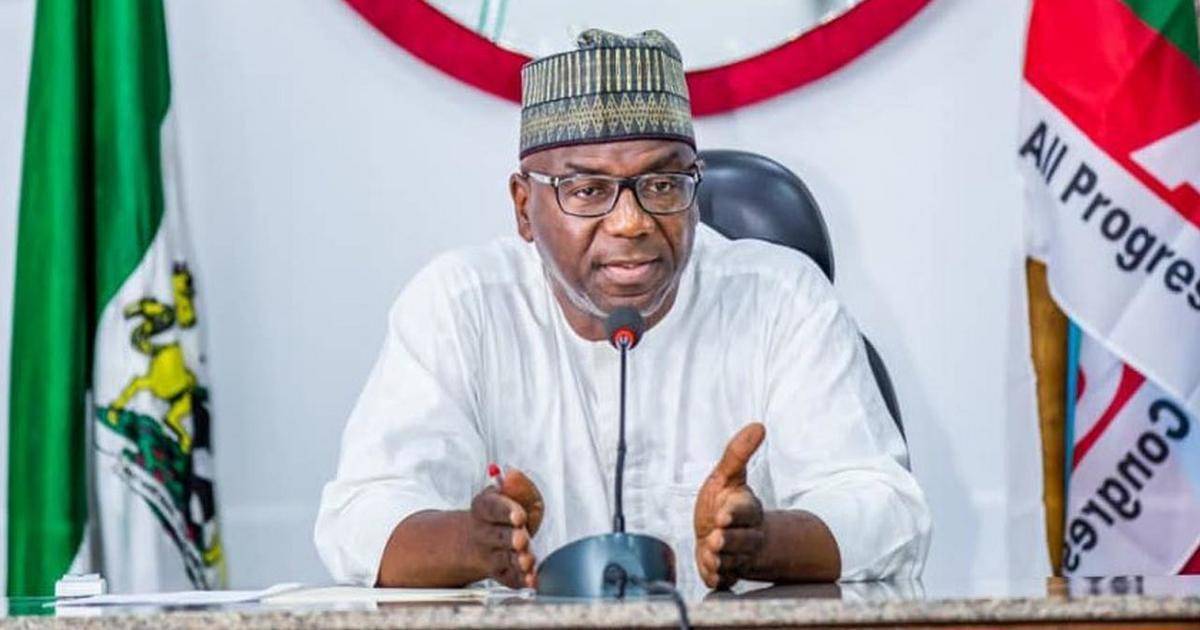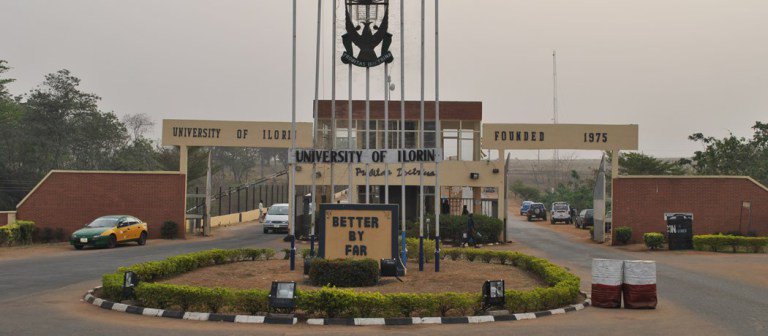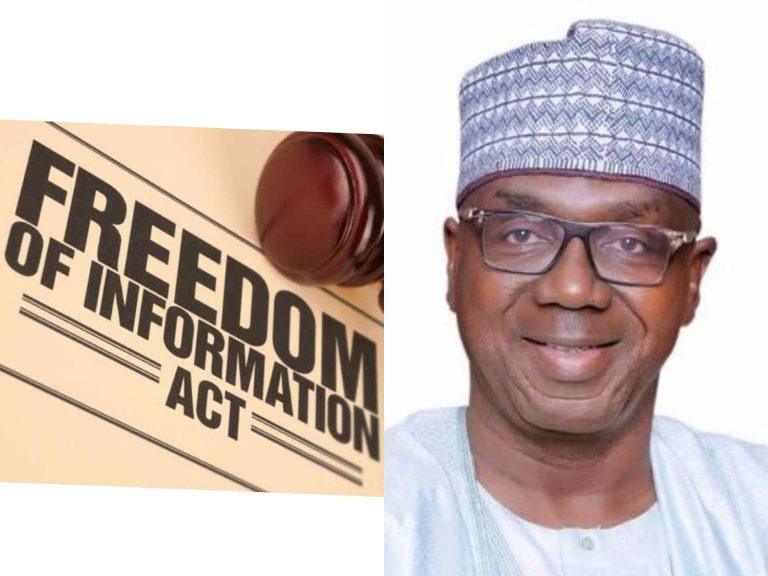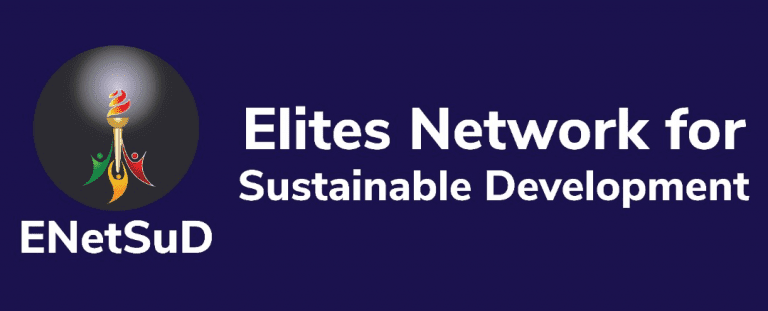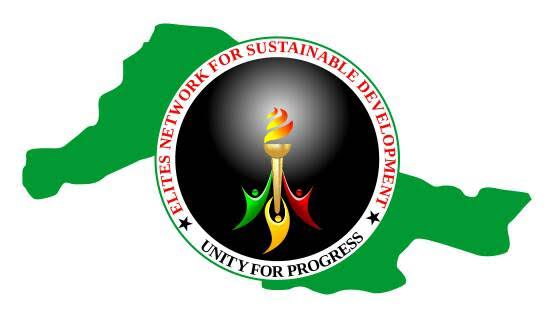FEATURE: Nigerian law allows public access to information, but Kwara governor is blocking it
Access to public information in Kwara State under the current administration led by Governor AbdulRahman AbdulRazaq is not a right but a privilege.
This is the current reality, as public information can now only be accessed if the Governor of the state permits it.
At the centre of this development is the Freedom of Information Act 2011, which grants individuals the right to access public records and information held by government agencies and other public institutions.
The Act establishes a legally enforceable right for citizens to request and receive information from these bodies, fostering transparency and accountability.
According to the public accountability and transparency group Elites Network for Sustainable Development (ENetSuD), the Kwara State Ministry of Energy, in response to a Freedom of Information (FOI) request from the group, stated that it could not release information regarding public fund usage for projects unless it received approval from the Governor.
This position violates the freedom of access to information as enshrined in the Nigerian Constitution under Section 39 of the 1999 Constitution (as amended).
ENetSuD noted that it had earlier written to the Ministry on April 28, 2025, requesting information on projects executed between 2019 and 2024.
A statement from ENetSuD reads: “The Ministry initially replied via a letter (Ref: S/MOE/ADM-437/1/4) dated May 6, 2025, though it was received by ENetSuD on May 16, 2025.
In its reply, the Ministry informed ENetSuD that ‘our request has been forwarded to the appropriate government quarters for further action.’”
It further stated: “ENetSuD sent another letter to the Ministry on May 19, 2025, highlighting the Ministry’s violation of the FOI Act 2011, under which the information was requested.
In a subsequent response dated May 22, 2025, the Ministry appealed for patience, explaining that the ‘appropriate authority’ had not yet approved the release of the information.”
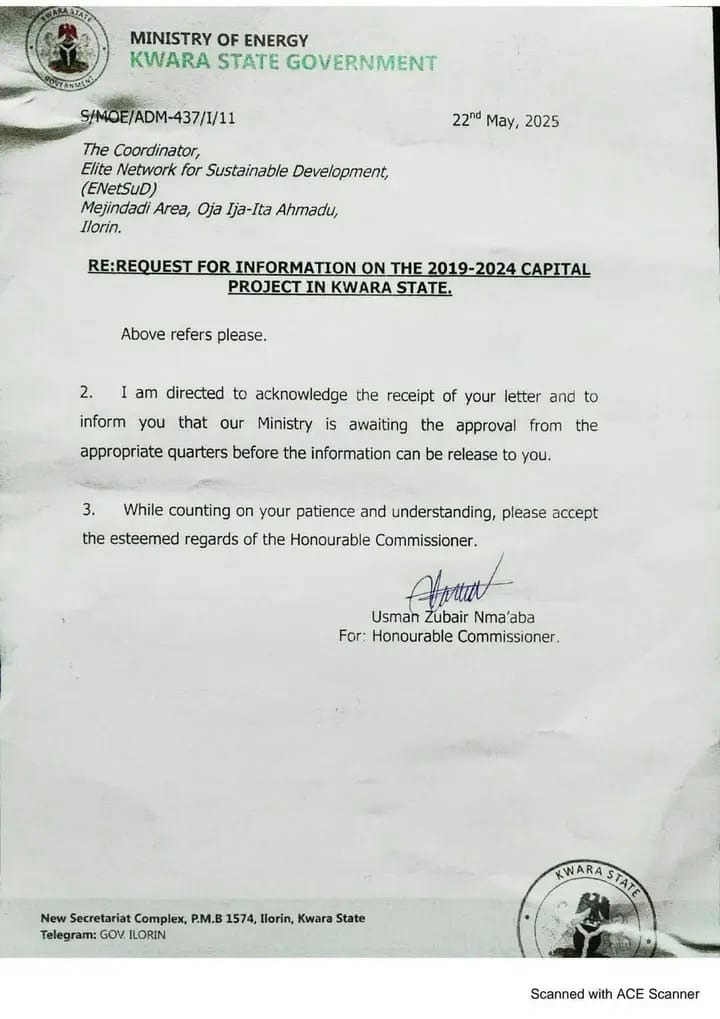
ENetSuD interpreted the “appropriate authority” as Governor AbdulRahman AbdulRazaq, based on the Kwara State FOI Bill 2025, which he submitted to the Kwara State House of Assembly. The bill includes Section 31, which forbids any State MDA from releasing information to any applicant without the Governor’s written approval.
Background
The Kwara State Freedom of Information (FOI) Bill 2025 was passed on Tuesday, May 20, 2025, by the 10th Kwara State House of Assembly.
The judgment was seen as a milestone for the 14-year-old legislation, whose implementation had faced challenges due to limited commitment to transparent and democratic governance across the country.
One strategy some public institutions and officials use to avoid compliance is claiming that federal law does not apply at the state level.
Many federal institutions, while acknowledging they are bound by the law, routinely ignore FOI requests without consequence.
The Supreme Court case that led to this judgment originated on January 6, 2014, filed by a coalition of civil society organizations. It followed the denial of an FOI request by the Edo State Agency for the Control of AIDS (EDOSACA).
The applicants sought records on the HIV/AIDS Programme Development Project (HPDP II), including financial details, grants, partnerships, and contracts between 2011 and 2014.
After the Federal High Court ruled in favor of the applicants, the state appealed to the Court of Appeal (Benin Division), which reversed the decision, stating the FOI Act was not applicable to states.
However, the Supreme Court judgment overturned the 2018 majority ruling of the Court of Appeal, affirming that the FOI Act applies to all levels of government, including state institutions.
Previously, in May 2019, the FOI Bill was passed by the 8th Kwara Assembly. But when Governor AbdulRahman AbdulRazaq assumed office, he returned it to the 9th Assembly with amendments — including: Extending the response period from 7 to 14 days; Increasing fines from ₦100,000 to ₦500,000; Changing the penalty from “fine or jail” to “fine and jail”.
While the bill stalled in the House, the recent Supreme Court ruling triggered renewed legislative interest.
Governor AbdulRazaq later resubmitted the bill, and a public hearing was held on May 19, 2025. At the hearing, stakeholders raised concerns about Section 31(1), which mandates that: “No information shall be released by any Ministry, Department, or Agency (MDA) without the express consent of the Governor in writing.”
Section 31(2) adds: “No one acting pursuant to this Law shall be liable in any way if non-compliance with the sections in the Law is due to delay in the Governor granting his consent.”
Despite these concerns, the Assembly passed the bill. It now awaits the Governor’s official assent to become law.
Governor’s 2020 Social Audit Proposal
It is worth noting that the Governor proposed the concept of social audit in 2020, intended to allow civic groups and communities to monitor government projects and ensure quality delivery.
However, it remains unclear whether this initiative has been implemented or yielded measurable results.
Journalists’ FOI Experience in Kwara
As a newsroom committed to transparency and accountability, The Informant247 has faced its own challenges in applying the FOI Act in Kwara State.
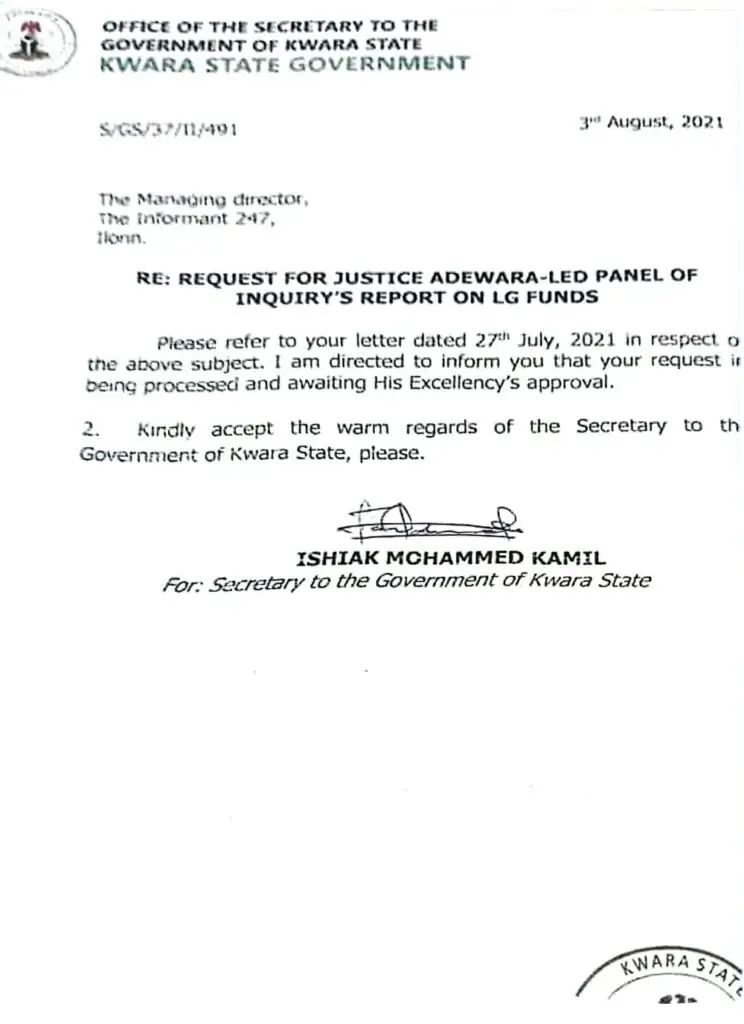
While some government MDAs and parastatals have responded to information requests, others have failed to do so.
For instance, the newsroom previously requested the final report of the Retired Justice Mathew Adewara-led panel on the alleged diversion of N300 million monthly from local government funds. The response was that only the Governor could authorize the report’s release.
More recently, the newsroom received a response to an inquiry into spending and the current state of the Ilorin Visual Arts Centre, which contributed to a month-long investigation published by this outlet.
What’s Next for Kwara?
ENetSuD has indicated plans to challenge the Kwara FOI Bill 2025 in court once it is signed into law and gazetted.
Until then, the public can only access information that the Governor chooses to release.

